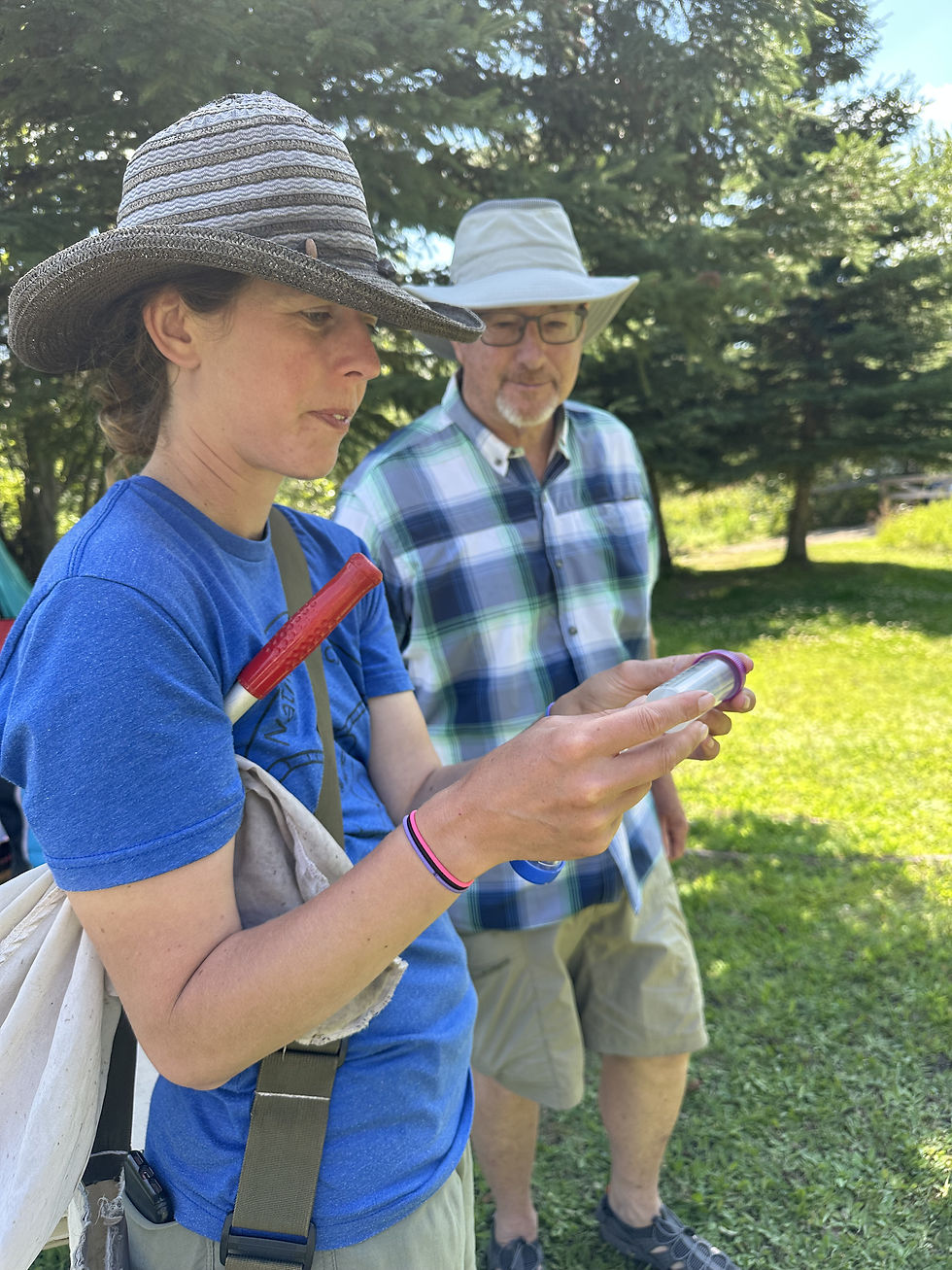Mini Bee School Prince George
- Native Bee Society of BC

- Aug 21, 2025
- 2 min read

Club Support Grant Report: Mini Bee School Prince George
By Bonnie Zand, NBSBC.
If you were in Prince George on the weekend of August 2-3, you might have been surprised to see a group of naturalists wandering about, staring at flowers, or waving white nets in the air. What are they doing? Learning about Native Bees, of course! Thanks to the generous support of BC Nature and the BC Naturalist Foundation, through a Club Support Grant, the Native Bee Society of BC (NBSBC) was able to host two days of “Mini Bee School” in Prince George – our most northern workshop to date! The workshop also received logistical support from the Prince George Naturalists Club and the classroom was provided through partnership with UNBC Sustainability – Thank you!

With a sold-out class of twelve students, the workshop started off in the classroom. Using digital microscopes and prepared specimens, and guided by instructor Bonnie Zand, the participants spent the morning learning bee terminology and how to tell the difference between a bee, a fly and a wasp. With those important distinctions in mind, the class moved on to learning how to distinguish some of the common species of bumble bees – not an easy task, with lots of bumble bee mimicry and variability at play. The afternoon was spent learning about common bee genera found in the area. Hair bands, facial fovea, wing veins and big jaws were all important features to recognize sweat bees (Halictus or Lasioglossum), mining bees (Andrena), polyester bees (Colletes) or leafcutter bees (Megachile). Day one wrapped up with some tips for recognizing and creating native bee habitat (tip – 70% of our native bees nest in the ground and need access to soil!).

Day two convened at the home of Prince George Naturalists Club members Dave and Cheryl Leman. With five acres of unmanaged open meadow, participants had lots of flowers to inspect for bees. With seven different bumble bee species present, including our favorite mimic Bombus rufocinctus and many hard to ID males, participants got to practice what they had learned in class. Data collected during the day also supports the efforts of the NBSBC to document bee species through out BC via our iNaturalist Bee Tracker and our BC Bee Atlas. Class wrapped up by creating a pollinator network for the property, but the hope of the NBSBC is that learning and creating native bee data is just beginning for our participants!

If you missed our Prince George event, the NBSBC has a couple more workshops coming this fall! Join us on September 6-7 in partnership with Vancouver Island University Cowichan, or on September 21st at the Horticultural Center of the Pacific in Victoria.




Comments